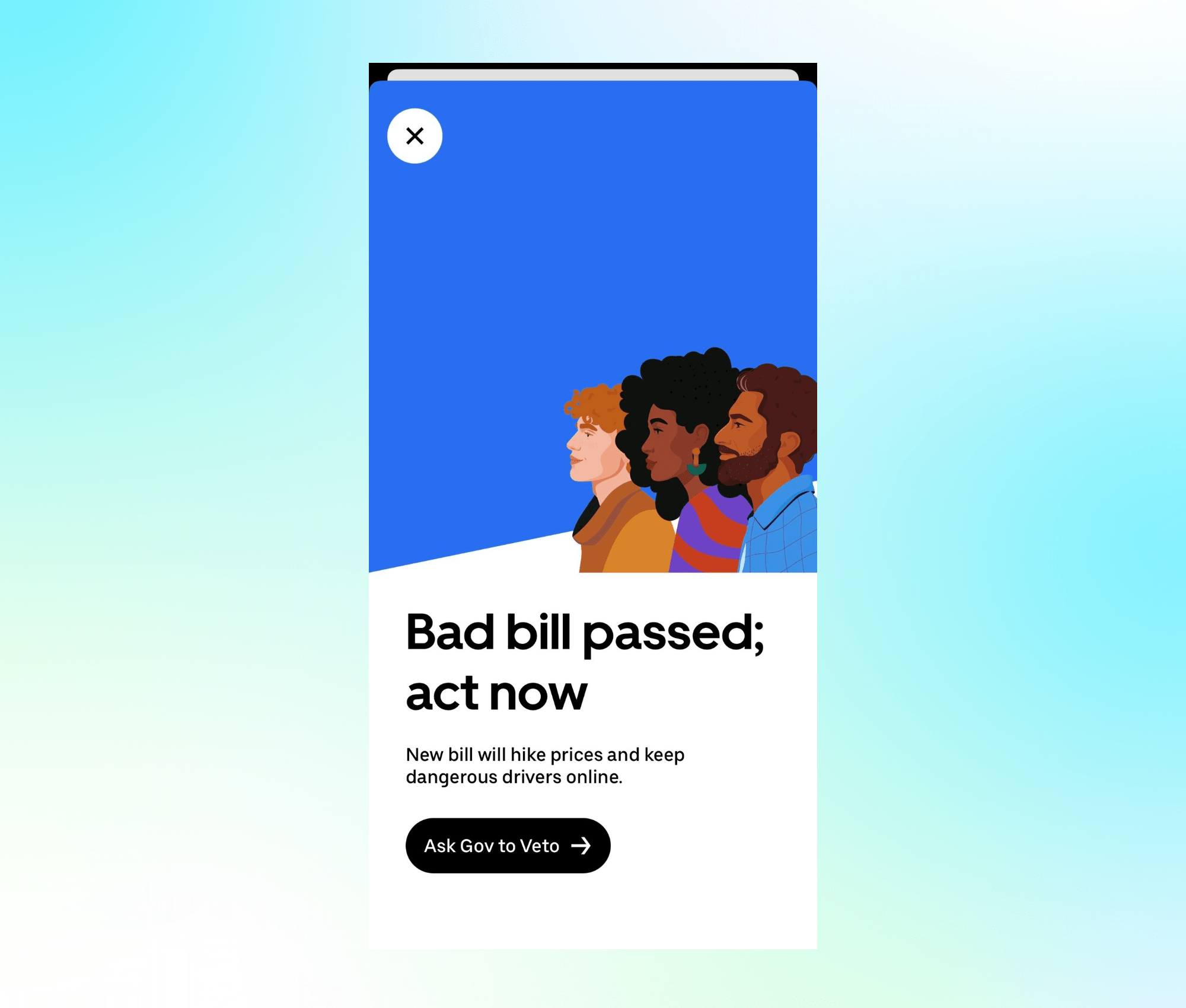Welcome back to The Flyover, your daily digest of what local media outlets and Twitter-ers are gabbing about.
Walz Sells Out Rideshare Workers
Earlier this week, celebratory Uber and Lyft drivers literally carried state Sen. Omar Fateh (DFL-Minneapolis) around on their shoulders following passage of a bill that would provide better workplace protections and minimum wages for rideshare workers.
The Minnesota House and Senate have now both passed a law to set minimum pay rates for Uber and Lyft drivers.
— More Perfect Union (@MorePerfectUS) May 22, 2023
Uber threatened to leave parts of the state over the legislation.
Drivers celebrated one of the bill's sponsors @OmarFatehMN after it passed. pic.twitter.com/3sulixfZcV
Earlier today, Uber upped its ongoing tantrum over the proposed regulations, threatening to yank service from outside the Twin Cities and only offer "premium products" inside the metro if Gov. Tim Walz signed the bill into law. This was part of a pressure campaign like the one Mayo Clinic waged and, eventually, won when its lobbying blitz resulted in the gutting of a bill that nurses fought hard for earlier this month. Uber had an ally in its biggest competitor, Lyft, which issued a letter to Walz over the weekend that threatened, "If allowed to become law, this bill could result in Lyft leaving many Minnesota markets."
Walz, who remained publicly noncommittal about signing the rideshare bill, faced a choice between Silicon Valley firms whose entire business models hinge on exploiting workers or those very workers. “So, about a month ago before the bill passed we sat with the governor’s staff. We walked them through the bill and they made a commitment at that time that they would sign the bill if it goes through the House and the Senate,” Omar, a co-sponsor of the bill, told reporters Monday. “Now that we’re at that stage, I would love to see them keep their promise that they made to us and the workers and the drivers.”
Just moments ago, Walz vetoed the bill and issued an executive order to create a commission that will—get excited, exhausted and underpaid drivers!—further study the issue. WCCO's Esme Murphy reports it's the first time he has ever vetoed a bill as governor of Minnesota. “Rideshare drivers deserve fair wages and safe working conditions. I am committed to finding solutions that balance the interests of all parties, including drivers and riders,” Walz said via press release. "This is not the right bill to achieve these goals." Members of the Minnesota Uber/Lyft Drivers Association who rallied Thursday morning at the Capitol, imploring leaders to act in their interests, disagree. State Sen. Jen McEwen (DFL-Duluth) didn't mince words Thursday afternoon, calling the veto "truly terrible, embarrassing" and saying it "tarnished" Walz's reputation. Her fellow DFLers are speaking out, too.
Regulations, Demand, Staffing Make It Hard for MN to Hit Eco Goals
By 2040, Minnesota is supposed to run on 100% renewable energy. But according to this excellent series from KSTP’s Kirsten Swanson, hitting that deadline appears almost impossible. Why? Because regulatory systems in the energy sector move slooooow. As more and more permits for wind, solar, and high voltage energy projects come in, the Public Utilities Commission struggles to keep things moving along, with some proposals taking three to five years to get approval, which then needs approval from the overseers of the nation’s power grid, Midcontinent Independent System Operator. Not to mention the actual construction, which can take 5-10 years. “The work is getting more complicated and more complex,” PUC vice chairman Joseph Sullivan tells KSTP. “We have excellent staff, and they do a good job. But fundamentally, there’s a bandwidth issue.”
A 94-Year-Old North Sider Has Her Day in (the Supreme) Court
In 2010, 81-years-old Geraldine Tyler moved out of her one-bedroom condo in north Minneapolis’s Folwell neighborhood and into a senior facility. Though she held onto the property, she fell behind on payments, eventually owing $2,300 in state taxes plus $15K in interest. When Hennepin County seized the property, it sold it for $40K—and kept the entire sum. While Tyler says she couldn’t afford to pay the fines, she also didn’t expect the county to keep the $22,700 difference. Turns out the U.S. Supreme Court agrees, and sided with her argument today unanimously. “The County had the power to sell Tyler’s home to recover the unpaid property taxes. But it could not use the toehold of the tax debt to confiscate more property than was due,” writes Chief Justice John Roberts.
This ruling will have repercussions nationwide: 12 states allow local jurisdictions to keep excess money in property seizures/sales situations like this. But that’s going to have to change, and fast. “Based on today's decision, which found Minnesota's law unconstitutional, Minnesota’s property tax forfeiture laws must be revised,” Dan Rogan, assistant county administrator and county auditor, tells MPR.
Housing Crunch Hits the North
Think you can escape the housing crunch by leaving the metro? Not likely, Aaron Brown writes from Itasca County in the Minnesota Reformer. An array of factors, including the increased possibility of working from home that came with the pandemic, is driving Minnesotans up north for good, and out-of-staters are moving in as well. Brown quotes a real estate agent who says cabins are going for $200,000 to $300,000 and lake homes for $300,000 to $500,000, and even as much as $800,000. Along with the rising home values come rising property taxes as well. And homebuilding is not rising to meet demand, in part due to the high cost of materials. Brown says that in Hibbing, even a Habitat for Humanity house can cost $175,000 to build.






